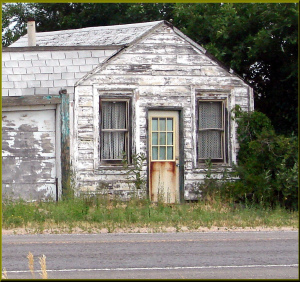
Under capitalism, poverty can erode even the steadiest structures of our lives. When people experience poverty, financial security crumbles, health dwindles, and personal motivation can spiral into disarray. As soon as we begin mending one of these problems, the others seem to pop up with increased vigor. A vicious cycle forms, without the faintest glimmer of an exit.
This reality, known by millions of workers, points to an unsavory truth. Sometimes, our efforts to rise from poverty only end up worsening it. In the United States’ blossoming “fixer upper” market, as reported by the New York Times, this principle operates with ferocious abandon. This industry preys upon the most essential structure of all: our homes. It ensnares low-income families in a money trap, by selling them houses in need of renovation, and swiftly evicting them when repair costs interfere with mortgage payments.
The choice between living in a rotten building, or dwelling in none whatsoever: such is the “freedom” capitalism offers consumers.
To study this phenomenon more deeply, let’s take a look at Harbour, an investment firm that has purchased large numbers of derelict properties over the last five years. Harbour snatches these residences for a few thousand dollars a piece, before demanding several times that amount from potential occupants. The burden of making such homes “habitable” lands on these unwitting customers, who often enter into contracts with minimal awareness.
Unsurprisingly, overhauling these houses places an enormous strain on their inhabitants. Debt climbs, finances implode, and they eventually face eviction.
Harbour retakes control, places the building back on the market, and the cycle begins again. In Detroit, this process has been especially devastating, with 300 Harbour-owned properties currently falling short on their payments. For many of these families, a sordid future awaits.
The inability to distribute resources efficiently is one of our economic system’s primary contradictions. Despite an abundance of houses, and plentiful means available to fix them, these abodes have become the cynical tools of predatory firms. In a country where peopleless homes outnumber homeless people, this injustice carries a particularly haunting tone.
More and more, the U.S. public has warmed up towards the concept of socialism as the only way out of capitalism’s absurd brutality. To achieve this solution, an independent working class movement is needed, one that can push various progressive causes towards a revolutionary outlook.
Only then will guaranteed housing cease to be a wistful “American Dream” and become a safe, secure reality.






